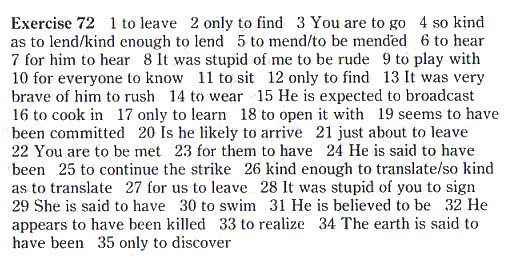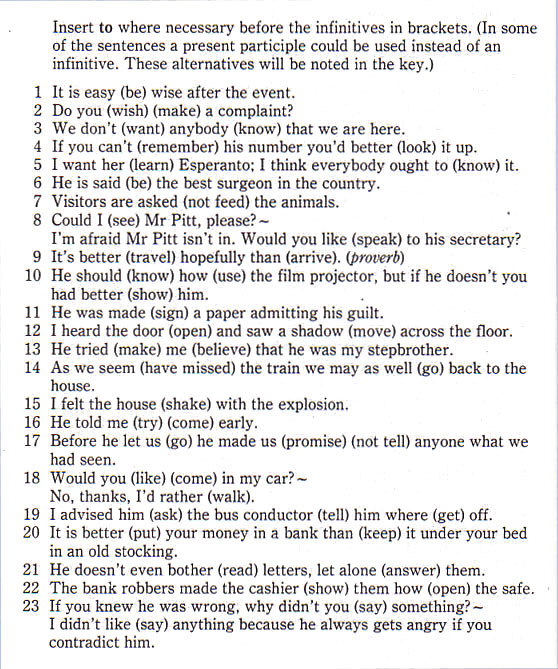
The infinitive
The infinitive as subject
An infinitive or an infinitive phrase can be the subject of the verbs be, seem, appear. The infinitive can be placed first:
• To obey the laws is everyone’s duty
• To save money seems practically impossible nowadays
• To lean out of the window is dangerous
When we refer to one particular action
the infinitive can be used as subject.
The gerund can be used instead of the infinitive when the action is being considered
in a general sense, but it is always safe to use an infinitive:
• To hesitate would have been fatal
• Reading French is easier than speaking it
Ex:
• It is not always easy to refuse invitations (no subject
position) >> • Refusing invitations is not always
easy
An infinitive may also be the subject
of a noun clause placed after find, discover, believe, think,
consider, expect, wonder (if).
• He found that it was easy to earn extra money
• He found it easy to earn extra money
• He will find that it is hard to make friends
• He will find it hard to make friends
An infinitive can be represented by 'to' alone to avoid repetition. Specially after verbs as: want, wish, like, love, hate, hope, try, after the auxiliaries have, ought, need, and with used, be able, and the be goin- g to form:
• Did you see the Pyramids? No, I wanted to (see them)
but there wasn’t time.
• I didn’t mean to take a taxi, but I had to (take one) as I was
late
• He wanted to go but he wasn’t able to,
• Have you fed the dog? No, but I was going to.
Verbs followed by how/what/when/where/which (+noun)/whether
+ infinitive:
• He discovered how to open the safe
• I found out where to buy bananas
• I have to think what to wear
• I wonder whether to write or to phone
• He couldn’t remember whether to turn left or right
• She learnt how to make lace
The infinitive is used after 'only' to express a disappointing
sequel:
• He survived the crash only to die in the desert
• He returned home only to know that her daughter had just become engaged.
The infinitive can be used after the
first, the second… the last, and sometimes after
superlatives to replace a relative clause
• He loves parties; he is always the first to come and the last to leave (the first who comes and the last who leaves)
• He is the second man to be killed in
this way (the second man who was killed…)
• She was the only one to survive the crash (the only
one who survived)
The infinitive can be placed after nouns and pronouns to show how they can be used or what is to be done with them
• I have letters to write
• Would you like something to drink?
• A house to let (a house that the owner wants to let)
The infinitive can be used in the same way
with preposition
• Something to work for
• A pen to write with
• A tool to open it with
• A table to write on
• A cup to drink out of
The infinitive is also used:
After it is/was + adjective + of you/him, etc [da parte tua]
• It is nice of you to help me
• It was clever of him to find his way here.
After it/that + is/was/would be + adjective + noun
• That ‘s a stupid way to park a car
• That would be a very rude thing to say
But also
• What a funny name to give a dog
• What an odd place to have a picnic
Exercises

Keys

§§§§
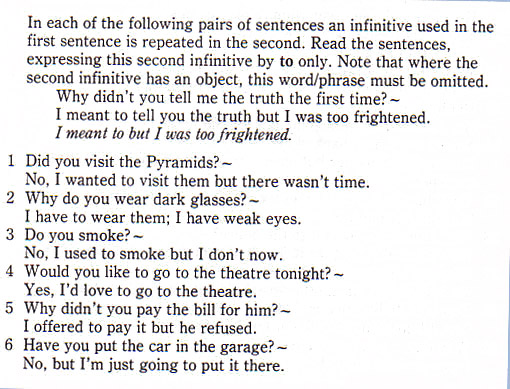
§§§§
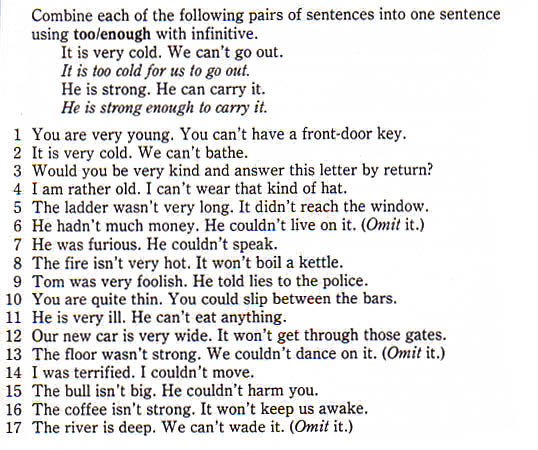
Keys

§§§§
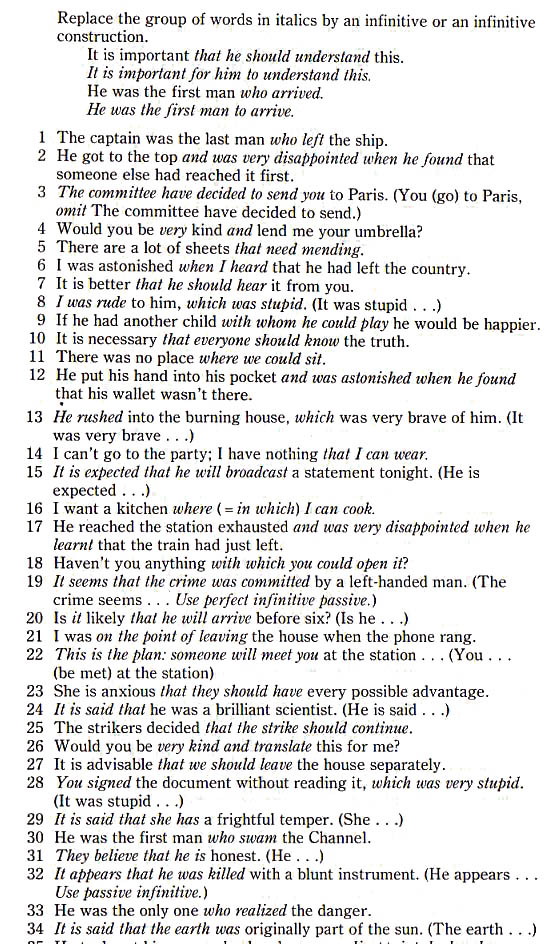
Keys
